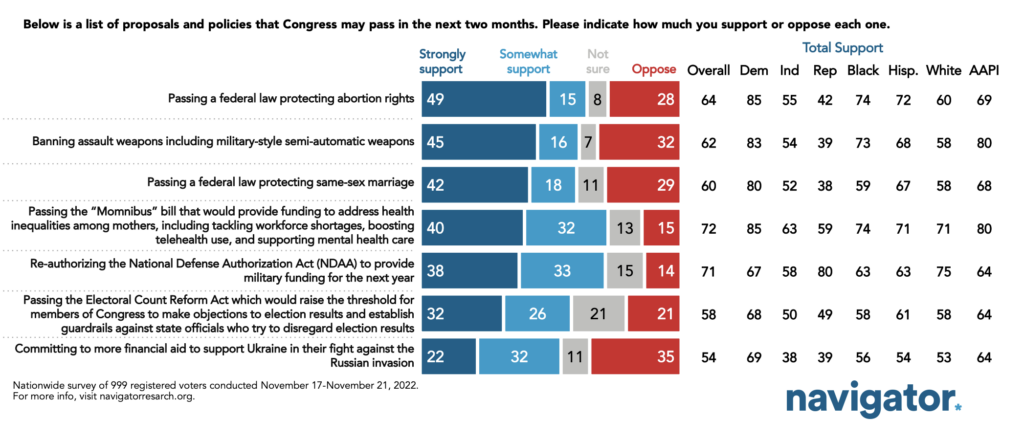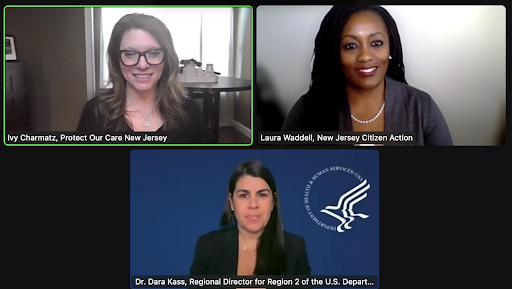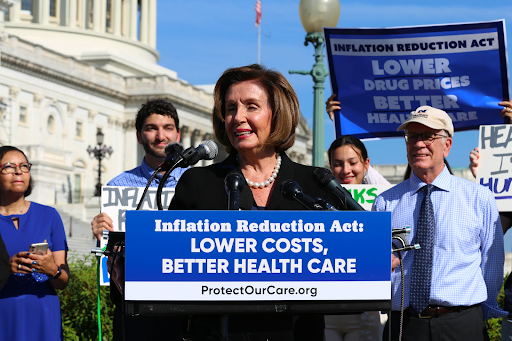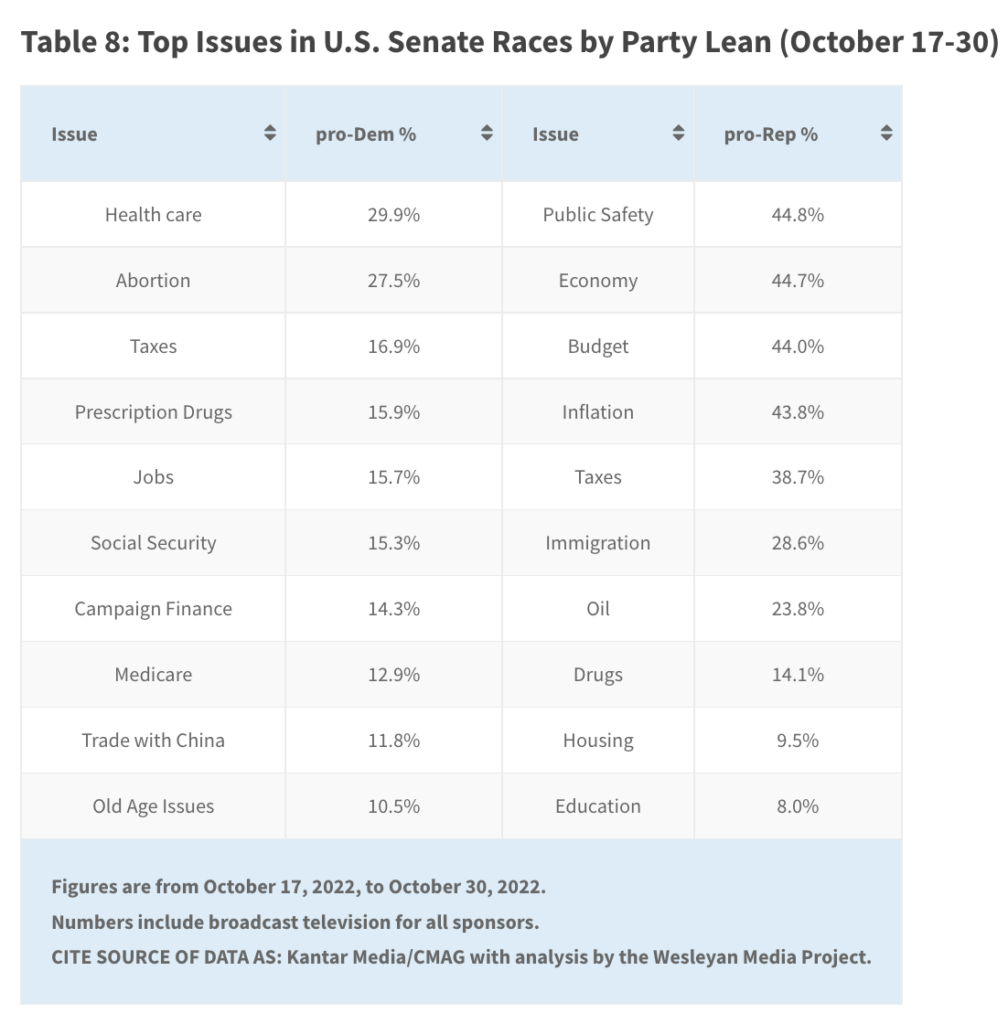The presumed incoming ranking member on the Senate HELP Committee, Senator Bill Cassidy (R-LA)’s record on health care is as abysmal as they come. Over the years, Cassidy has voted to rip health care coverage from millions of Americans and strip protections from as many as 130 million people with pre-existing conditions, and his own 2017 repeal bill was the worst of the bunch. Senator Cassidy has also opposed provisions before Congress that would lower drug prices, expand coverage, improve care for seniors, and level the playing field for working families. Republicans like Senator Cassidy are completely out of touch with the economic and health worries that keep families up at night as they continue to put industry profits ahead of their constituents.
Bill Cassidy’s Plan To Repeal The Affordable Care Act Would Leave Tens Of Millions Without Care
After the failure of Donald Trump’s other attempts to repeal the Affordable Care Act, Bill Cassidy partnered with Lindsey Graham and Dean Heller on a proposal that would have radically changed our health care system – ending the Affordable Care Act tax credits and Medicaid expansion and changing them into block grants with dramatically less funding for states. It would have also converted traditional Medicaid into a per capita cap program permanently. This bill aimed to slash coverage, raise costs, eliminate protections for millions of people across America and gut Medicaid. In fact, it was the worst of the repeal bills that were proposed in 2017 and its bad ideas have lingered on for years.
Cassidy’s Bill Was Worse than Other Repeal Bills
Analysts Agreed: Every State Would Have Suffered Under Graham-Cassidy Affecting People’s Care. Multiple independent analyses agreed that the Graham-Cassidy repeal bill would have cut federal funding to states. Over time, every state would lose because Graham-Cassidy proposed to zero out its block grants and ratchet down its spending on the Medicaid per capita cap. This meant people would not have access to the financial assistance to help lower their health care bills, and federal Medicaid funding would no longer adjust for public health emergencies, prescription drug or other cost spikes, or other unexpected increases in need.
Cassidy’s Health Care Plan Cut Care For Millions Of Americans
Under Graham-Cassidy 32 Million Would Lose Health Coverage. As a result of zeroing out block grants for Marketplace tax credits and Medicaid expansion and additional cuts to Medicaid, the Graham-Cassidy bill essentially repealed the Affordable Care Act without replacing it.
Millions Enrolled Through Medicaid Expansion Would Be Put At Risk. The Graham-Cassidy bill would have eliminated Medicaid expansion, which has helped more than 15 million Americans receive quality, affordable coverage, and put part of its funding into inadequate block grants. The bill would have further punished states that expanded Medicaid by redistributing funds to states that did not expand Medicaid.
More Than 70 Million Americans with Medicaid Coverage, Including Seniors, People with Disabilities, and Children, Would Be Put At Risk. The Graham-Cassidy bill would have turned traditional Medicaid into a per capita cap, meaning millions who are enrolled in Medicaid would have had their care jeopardized. Medicaid disproportionately helps children, seniors in nursing home care and people with disabilities. A study by Avalere found that Graham-Cassidy would have cut funding for people with disabilities by 15-percent and 31-percent for children by 2036.
More Than 35 Million Children’s Care Would Be Put At Risk. Millions of children are enrolled in Medicaid and CHIP, whose care could be at risk because of the funding cuts in Graham-Cassidy.
Cassidy’s Health Care Plan Raised Costs And Ended Protections For People With Pre-Existing Conditions
Under Graham-Cassidy Premiums Would Have Increased 20 Percent in the First Year. According to the Congressional Budget Office, Graham-Cassidy included provisions that would have raised premiums up to 20 percent in the first year.
Graham-Cassidy Would Have Raised Costs For People With Pre-Existing Conditions. Graham-Cassidy would have allowed states to let insurance companies once again charge people with pre-existing conditions more, which could have raised costs for more than 130 millions Americans that have a pre-existing condition. For example, an individual with asthma would face a premium surcharge of $4,340. The surcharge for pregnancy would be $17,320, while it would be $142,650 more for patients with metastatic cancer.
People Over The Age of 50 Would Have Faced An “Age Tax.” The Graham-Cassidy bill would have allowed states to let insurers charge people over 50 high premiums without limits. AARP said, “The Graham/Cassidy/Heller/Johnson bill would result in an age tax for older Americans who would see their health care costs increase under this bill.” AARP estimates that 60-year-old Americans could have paid as much as $16,174 more in higher premiums and out-of-pocket costs in 2020.
Bill Cassidy Is A Relentless Foe Of The Affordable Care Act
As A Member Of The House, Bill Cassidy Voted Against Initial Passage Of The Affordable Care Act And For More Than 50 Repeal Attempts. As a member of the House from 2009-2015, Bill Cassidy was a relentless opponent of the Affordable Care Act, including voting against initial passage of the law and voting for at least 50 Republican attempts to repeal or substantially alter the law. His anti-ACA record continued in the Senate, where he voted for legislation that gutted the Affordable Care Act by eliminating the insurance exchanges and subsidies, and repealing the Medicaid expansion accepted by 30 states in his first year in office.
2017: Cassidy Voted For All Three Republican Attempts To Repeal The ACA, Endangering Care For Millions Of Americans. In July 2017, Bill Cassidy voted for all three Republican attempts to repeal the Affordable Care Act – “Repeal and Delay,” the Better Care Reconciliation Act, and “Skinny” Repeal. All three would have had devastating impacts on Americans’ care, cutting millions off from coverage.
- If “Repeal and Delay” had become law, 32 million fewer people would have had health insurance by 2026 and health insurance premiums would have doubled for those in the individual market.
- If BCRA had become law, it would have eliminated coverage for 15 million Americans in 2018 and increased individual premiums by 20 percent
- If “Skinny” repeal had become law, at least 15 million Americans would have lost coverage in 2018, the largest one year increase in US history, and premiums would have gone up by roughly 20 percent
2022: Cassidy’s Vote Against The Inflation Reduction Act, Was A Vote For Higher Health Insurance Premiums for Millions of Americans. Bill Cassidy joined every other Republican in Congress in voting against the Inflation Reduction Act. A record breaking 14.5 million Americans enrolled in an ACA marketplace plan in 2021. Right now, nearly 13 million people, or 89 percent with an ACA plan, are receiving enhanced premium tax credits, making their coverage affordable and accessible. The Inflation Reduction Act saves the average American family $2,400 a year and is extended through 2025. The Inflation Reduction Act ensures families pay no more than 8.5 percent of their income towards coverage. This helps middle and working class families facing excessive premiums or living in high-premium areas.
- Cassidy’s Vote Against The Inflation Reduction Act Was Also A Vote Against Expanding Coverage for Communities of Color. The Center on Budget Policy and Priorities estimates the increased savings continued under the Inflation Reduction Act will cause a sharp decline in the uninsured rate across every racial group, with one in three uninsured Black adults gaining coverage. Health coverage access is imperative to reducing racial disparities in health coverage across the nation and Bill Cassidy and every other Republican in Congress voted against it.
Bill Cassidy Took Hundreds Of Thousands Of Dollars From Big Pharma And Opposed Efforts To Lower Prescription Drug Prices
Bill Cassidy Voted To Block Medicare From Negotiating Lower Drug Prices. For nearly 20 years, Medicare has been banned from negotiating the price of prescription drugs for seniors, and Big Pharma has been able to dictate prices while Americans pay three times more for their medications than people in other countries. Bill Cassidy and every other Republican in Congress voted to leave that ban in place by voting against the Inflation Reduction Act. Under the Inflation Reduction Act, Medicare is empowered to negotiate prices for select drugs for Medicare Part D’s 49 million beneficiaries.
Cassidy Opposed Capping Out-Of-Pocket Spending For Seniors. Bill Cassidy and every other Republican in Congress voted against helping the more than 1.4 million Medicare enrollees who paid more than $2,000 in out-of-pocket costs in 2020. Seniors with serious conditions like cancer, multiple sclerosis, and rheumatoid arthritis will save thousands of dollars on prescriptions under the Inflation Reduction Act, which caps Medicare Part D out-of-pocket costs for prescription drugs at $2,000 per year beginning in 2025.
Cassidy Voted To Let Big Pharma Keep Raising Prices. The Inflation Reduction Act stops Big Pharma from raising Medicare drug prices faster than the rate of inflation beginning in 2023. For example, Humira, a medication commonly used to treat rheumatoid arthritis, is one of the nation’s highest revenue generating drugs, raking in $21 billion in sales in 2019. AbbVie, Humira’s manufacturer, has hiked the price of Humira 27 times, including in January 2021 when it raised its cost by 7.4 percent. Over the past 20 years, price increases for brand-name drugs in Medicare Part D have risen at more than twice the rate of inflation.
Cassidy Has Taken Hundreds Of Thousands Of Dollars From The Pharmaceutical Industry. It is no wonder why Senator Cassidy voted against the Inflation Reduction Act and was so opposed to Build Back Better, which both included historic provisions to rein in pharmaceutical companies and lower the cost of prescription drugs for millions of Americans. Between 2017 and 2022, Cassidy received over $500,000 in contributions from the pharmaceutical industry.


 COVERAGE:
COVERAGE: COVERAGE:
COVERAGE:
 COVERAGE:
COVERAGE:






